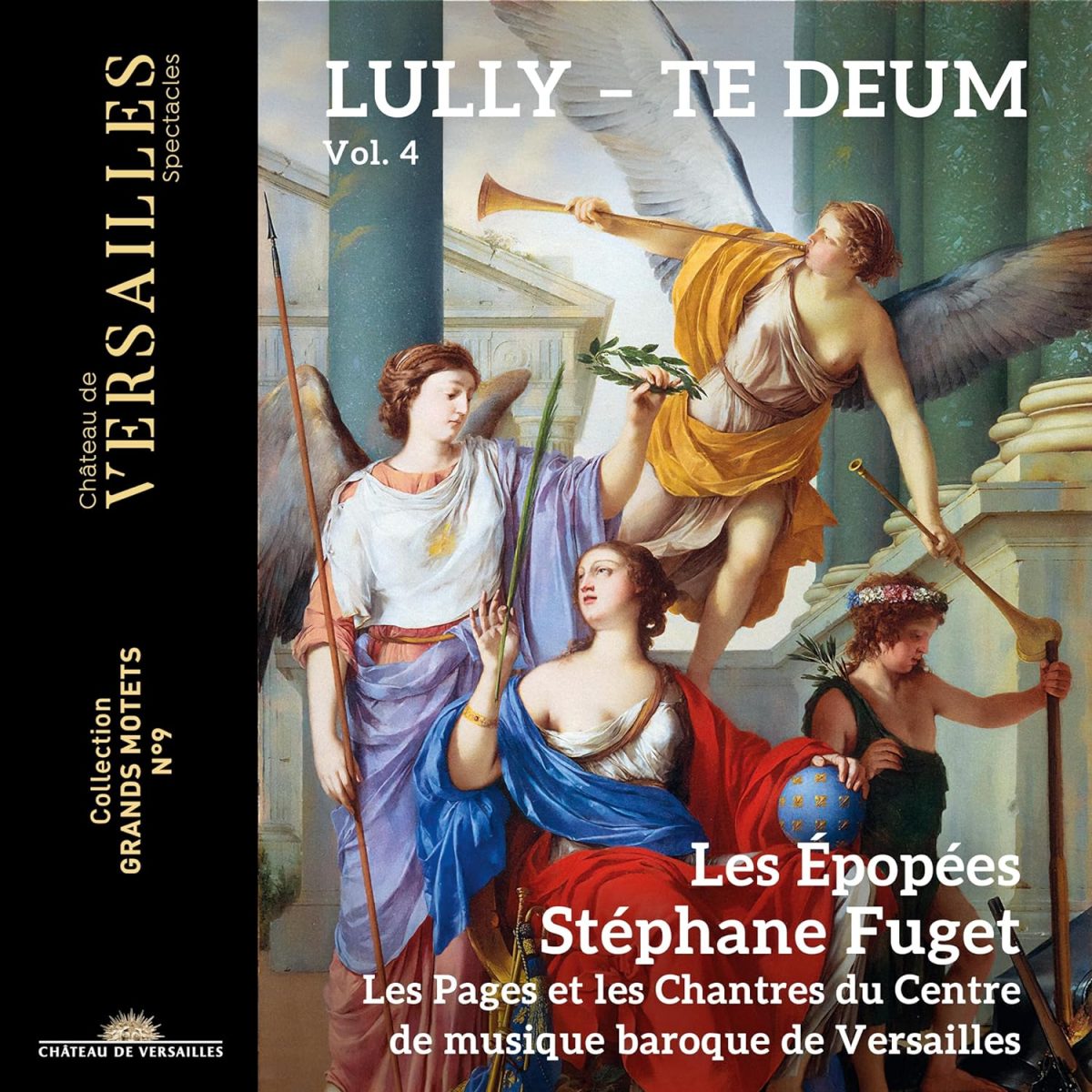Les Épopées, Les Pages et les Chantres du Centre de musique baroque de Versailles, directed by Stéphane Fuget
68:24
Versailles Spectacles CVS117
This is the fourth in the indispensable series of Lully’s grands motets being undertaken by Stéphane Fuget and his vocal and orchestral ensemble Les Épopées, recorded in the glorious acoustic of the Chapelle Royale in the Palace of Versailles. Here, tackling the Te Deum of 1677 – perhaps the most brilliant and theatrical of all the motets – they are augmented by the forces of the Centre de musique baroque de Versailles to form an ensemble close to 100 strong.
The Te Deum was first given at Fontainebleau not to celebrate some great military victory, the usual reason for running up a Te Deum, as might be supposed but rather the more intimate occasion of the christening of Louis, the eldest son of Louis XIV (whom he predeceased) and Queen Marie-Thérèse. The king, who one suspects was more the target of its praise than the infant, was so delighted with it that he asked for it to be given again the following day. Thereafter it was repeated on several occasions, the last of which was in January 1687 when it was given to celebrate the king’s recovery following an operation. This was the famous occasion on which Lully injured his foot with the staff with which he beat time, an accident that resulted in his death from gangrene some weeks later.
The Te Deum is preceded, as it surely would have been on ceremonial occasions, by a pair of marches by the Philidor brothers, the first for timpani including a fascinating piece of syncopation. Perhaps the most striking aspect of the Te Deum is that, unlike so many occasional ceremonial works of its kind, it is far removed from being just a spectacular tub-thumper. Even in the most brilliant sections employing all the performers, the level of musical invention remains on an impressively high level, while many of the more intimate passages for the petit choeur or soloists have a calm, inner radiance. As so often with this genre, just as you think the ear is going to be overwhelmed by sheer splendour and brilliance along comes an ineffable, lyrical passage of heart-stopping beauty, here memorably realised. In common with most works in this genre, the key is thus contrast, contrast that spans the splendour of the opening and closing pages to the supplicatory verses from ‘Dignare, Domine’ (Vouchsafe, O Lord), beautifully sung here by an unidentified bass, through to the wonderful trio (two haute-contres and bass) into which the petit choeur steals almost imperceptibly.
The other motet included makes for an ideal companion piece given that it was apparently customary for Exaudiat te Dominus, Psalm 19 (20) to be performed after the Te Deum at major ceremonies, as it was indeed after the performance to give thanks for the king’s recovery mentioned above. Interestingly it is markedly different in style, a more succinct setting with more clearly defined sections and more solo passages. Less brilliant than the Te Deum, the trumpets and timpani are silent until the doxology, they are of course required to round off the coupling of the two works with a suitably flamboyant flourish .
The performances are electrifying in the more overtly ceremonial passages, at the same time achieving an interiority and prayerful grace in more intimate music. The involvement of all is underlined by remarkable diction, not easy in this building with its blessedly long reverberation, while the solo singing and that of the petit choeur is of exceptional quality as indeed is that of the full choir and orchestra. This is yet another quite exceptional and uplifting achievement from Stéphane Fuget and his exceptionally gifted forces.
Brian Robins
